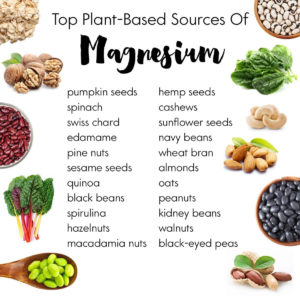You may know what magnesium is, but do you know how important the mineral can be for your health?
Magnesium is involved with over 300 metabolic processes in our bodies, leading to the mineral being called the ‘master mineral’.
So what exactly does it mean to have a magnesium deficiency, and what are some magnesium deficiency symptoms?
Firstly, magnesium is necessary for the proper transportation of calcium across cell membranes.
Why? Calcium needs other nutrients that help get calcium into bone matter. Those other nutrients are silica, vitamin D, vitamin K, and, you guessed it – magnesium.
Excessive calcium intake has been linked to heart health issues by staying in the blood long enough to calcify into arterial plaque.
While observing bodily signs can help, you may want to have some tests administered in the end to test whether or not you’re deficient in magnesium.
If testing is unavailable, put your symptom watch hat on.
There are many symptoms of magnesium deficiency that relate to cardiovascular, heart, neurological, and muscular dysfunction and disease.
These various magnesium deficiency symptoms are numerous because of the mineral’s diverse role in so many different cellular metabolic functions.
16 Magnesium Deficiency Symptoms
As mentioned, magnesium is a mineral responsible for numerous bodily processes.
An anti-inflammatory mineral offering protection against illnesses like arthritis and Alzheimer’s disease, magnesium has been used to remedy problems like high blood pressure, diabetes, respiratory issues, and much more.
But as you may suspect, just as upping magnesium intake can solve problems, a magnesium deficiency could lead to many of those same issues and much more.
Here are 16 signs of a magnesium deficiency:
Calcium deficiency
Poor heart health
Weakness
Muscle cramps
Tremors
Nausea
Anxiety
High blood pressure
Type II diabetes
Respiratory issues
Dizziness
Fatigue
Potassium deficiency
Difficulty swallowing
Poor memory
Confusion
It’s important to note that while these are symptoms of a magnesium deficiency, it doesn’t necessarily mean you are definitely deficient in magnesium if you experience the above issues.
If you don’t want to supplement and simply want to acquire magnesium through food sources, here are a few foods that can help relieve you of any magnesium deficiency symptoms:
Pumpkin seeds
Sunflower seeds
Soybeans
Black beans
Cashews
Spinach
Squash
Sesame seeds
Almonds
Okra
